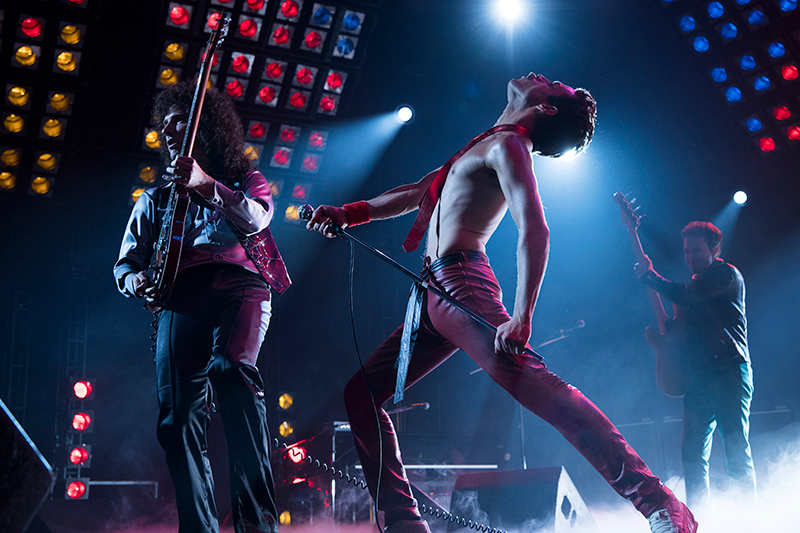Bohemian Rhapsody

Amid its non-musical flaws, Bohemian Rhapsody illustrates how Queen became the kings of arena rock, and how their iconic anthems have endured for more than a generation.
This conventionally structured biopic of the British band and its flamboyant frontman, Freddie Mercury, is entertaining on the surface despite having all the depth of a Wikipedia page, lacking insight into the artistic process or industry context for their success.
However, while in many ways the stylish film lacks the ambition of its subjects, it’s quite a showcase for the music, first and foremost, which pushes boundaries and combines genres.
The film traces the band’s beginning in England during the early 1970s, and subsequent rise to popularity while finding its unique sound. Mercury’s vocal range and showmanship were supported by guitarist Brian May (Gwilym Lee), bassist John Deacon (Joe Mazzello), and drummer Roger Taylor (Ben Hardy).
The focus is mainly on Mercury (Rami Malek), whose upbringing in a working-class Parsi family clashed with his desire for superstardom. However, fame and fortune brought challenges in his personal life, including revelations of his bisexuality that caused him to leave his longtime girlfriend (Lucy Boynton) for a male hairdresser (Aaron McCusker). As his health deteriorated, Mercury continued to record and perform before dying of complications from AIDS in 1991, at age 45.
Malek (Papillon) is superb, handling the challenge of embodying Mercury with more than just mimicry of his speech and mannerisms. He captures Mercury’s magnetism on stage as well as his awkwardness and insecurity when he’s not performing. The rest of the band members generate a convincing chemistry, and Mike Myers has an amusing cameo as a record executive with a particular dislike for the titular song.
With lots of material to cover, the screenplay by Anthony McCarten (Darkest Hour) glosses over some of the details, with a mildly hagiographic tone that feels slick and sanitized for mainstream consumption. However, that lack of depth and predictable rise-and-fall arc aren’t such drawbacks when you consider the band being profiled is hardly known for its complexity and sophistication.
Of course, the film is given a leg up by the terrific song catalog at its disposal, the unspooling of which should satisfy fans and perhaps introduce a new generation to some more obscure tracks. Combined with some electric performance sequences, it succeeds at its main goal, which is simply to rock you.
Rated PG-13, 134 minutes.